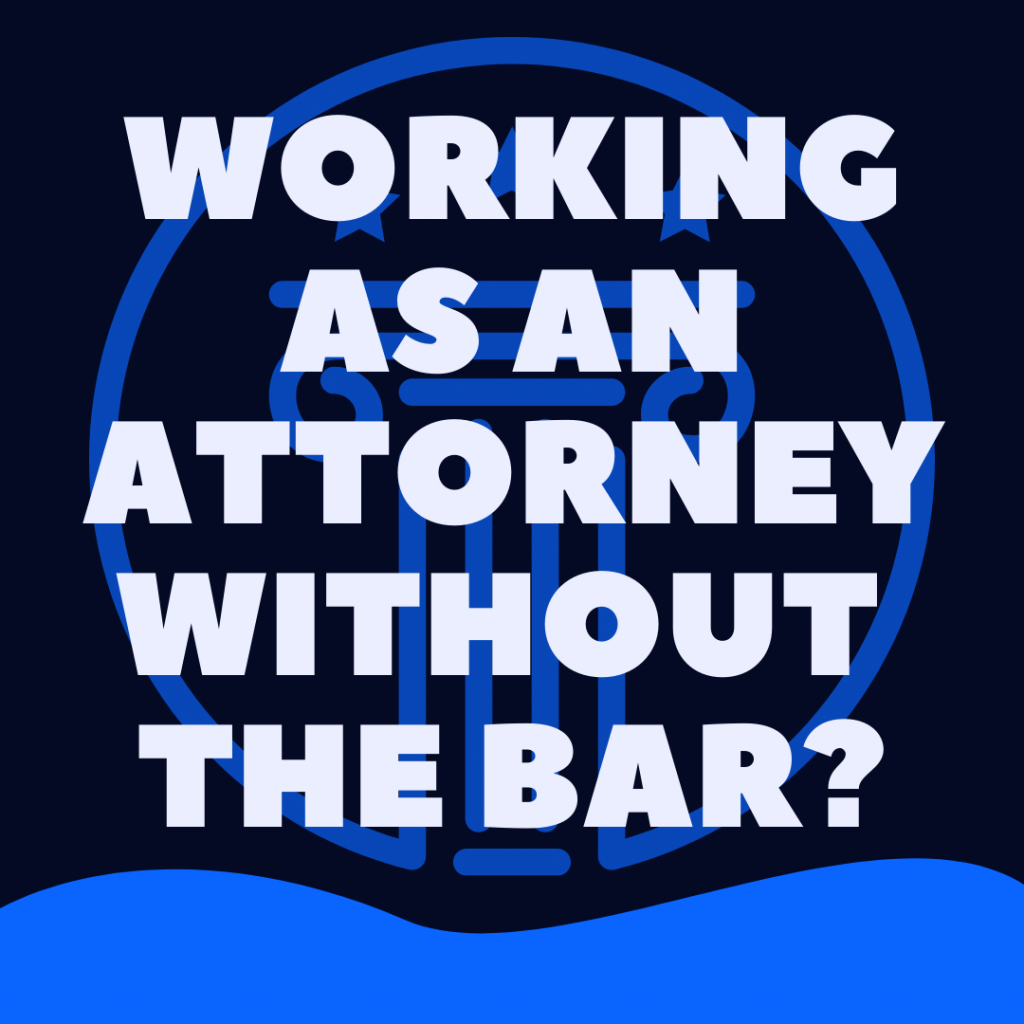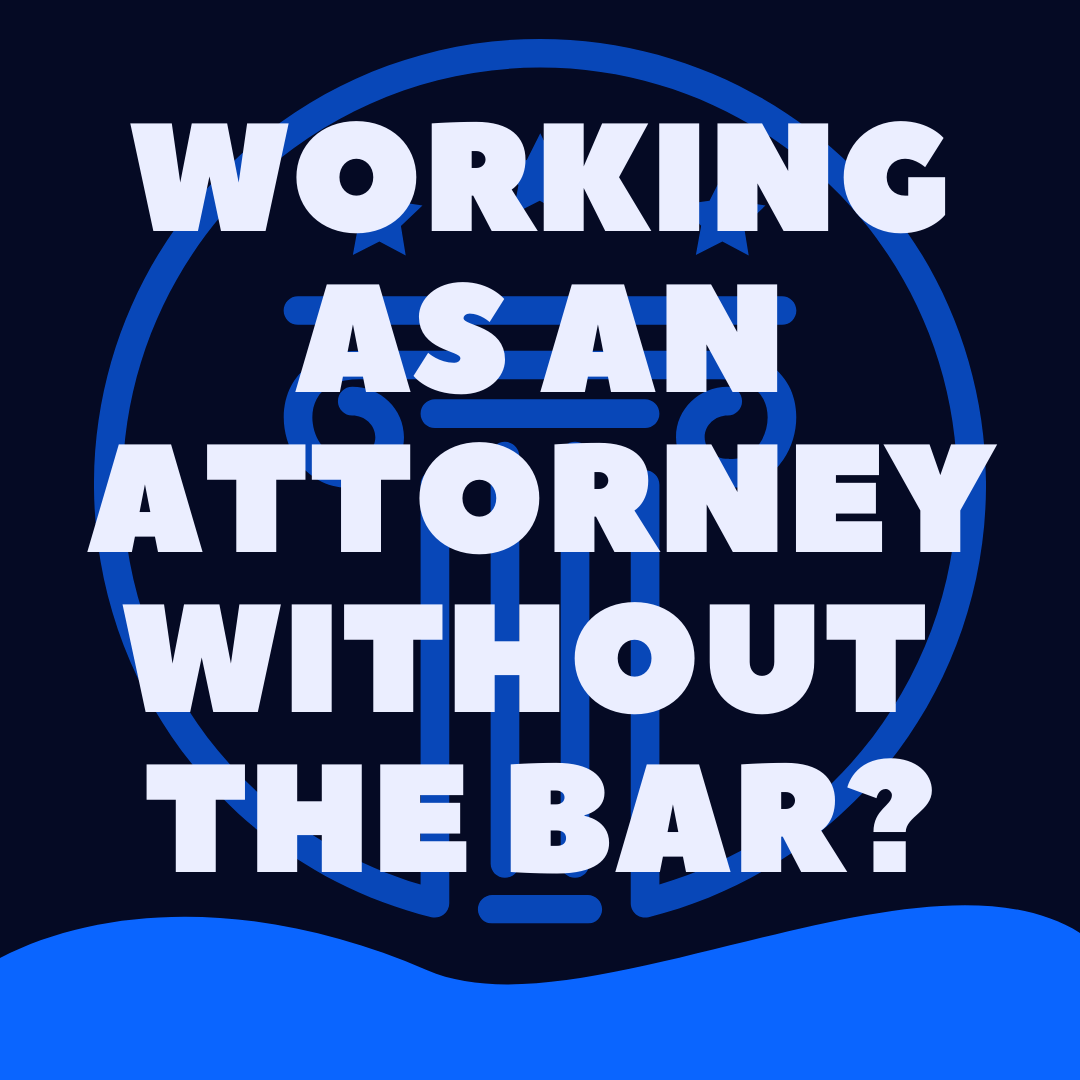Generally, no, you cannot work as an attorney (or call yourself an attorney) without passing the bar.
But there many be circumstances where you can perform attorney-type work without having to take the bar.
Let us explain.
Can You Work As An Attorney Without Passing The Bar? (EXPLAINED)
Disclaimer
The contents of this web page are for informational purposes only, and nothing you read is intended to be legal advice. Please review our disclaimer about law/legal-related information on this website before taking action based upon anything you read or see.
Requirements To Be An Attorney
In all of the states in the United States, there are things you need to do in order to become a licensed attorney.
They usually include:
- law degree (or the state’s equivalent)
- passing the state’s bar exam
- clean background check
- passing the state’s character/fitness to practice review
- paying fees
And without the license, you cannot hold yourself out as a lawyer (meaning tell other people that you are a lawyer).
This is even the case if you have completed law school and obtained your juris doctorate (J.D.)
In all of the states, passing the bar (at least somewhere in the United States) is a requirement to obtain a license to practice.
Now, you don’t always have to pass the bar of the state you are in, in order to practice there.
If you have passed the bar in another state, there may be a process by which you can “waive in” and practice in the state you haven’t taken the bar in.
Usually to “waive in” you’ll need to have passed the bar somewhere and have a few years of practice experience.
Doing Attorney Work Without The Bar
If you haven’t passed the bar (and obtained your license to practice law), you can still perform legal work.
In fact, there is a ton of legal work that can be done without a license.
First, you could work for a law firm under the supervision of a licensed attorney.
Many of the tasks you’d perform (such as legal research, speaking with clients, managing cases) are the same as the attorneys who do the supervising.
You just wouldn’t be able to tell the clients you were an attorney (or charge the clients the same hourly rates as the firm’s lawyers).
In some states, legal professionals supervised by lawyers can even appear in court in limited matters, which is pretty neat.
You can also volunteer with many organizations that offer free or low cost legal services (many law students do this kind if work to gain experience).
Further, there’s a lot of work that attorneys do which doesn’t actually count as “legal” work.
For example, many attorneys are mediators, negotiators, settlement coordinators, and arbitrators.
In many states, a law degree is not required for this kind of work.
Compliance work is also another job that many lawyers do, but since the primary duties of the compliance officer are auditing and reviewing the company’s performance in accordance with the rules/laws, there’s rarely a requirement that the compliance officer have a license to practice law.
People with legal training who do not have a license to practice often work in marketing for law firms, help build technology (like software and apps) to assist legal professionals, or even work in positions that support law firms (such as investigation and service of process).
Wrap Up
Failing the bar is not a pleasant experience.
Neither is coming out of law school with the degree and with debt and realizing for whatever reason that you can’t obtain a license to practice law.
But with a law degree and some work, you should be able to find a meaningful place in the legal community.
Want to learn more about our justice system?
Browse our free legal library guides for more information.
You might also like:
- Is It Illegal To Change Lanes In An Intersection In Alaska?
- Pros and Cons of Defense Work
- Are Prosecutors Considered Law Enforcement?
- How Do Prosecutors Get Paid?
- Do Lawyers Get Paid More When They Win The Case?
- Is It Illegal To Change Lanes In An Intersection In California?
- Will a Lawyer Take a Losing Case?
- Can a Prosecutor Be Arrested?


